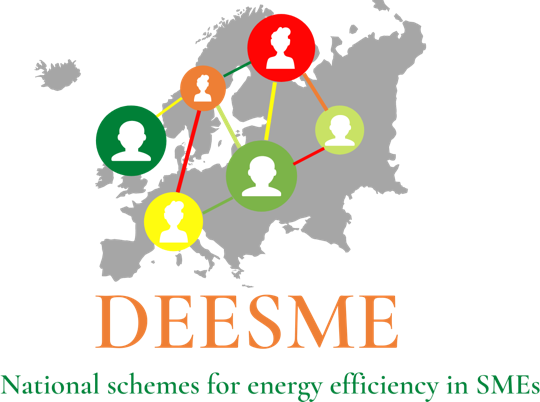DEESME’s informal session at eceee: anticipating changes in energy audit obligations

DEESME joined the eceee Summer Study last week to present the project under an informal session, eceee (the European Council for an Energy Efficient Economy) promotes energy efficiency and facilitates co-operation and networking through their Summer Studies.
In this informal session, DEESME underlined the several changes from the recast of Article 8 (new Article 11) of the Energy Efficiency Directive which addresses energy audits and energy management systems in the European Member States.
DEESME focused specifically on energy audit obligation in companies and the EED’s proposals of moving away from the ever-challenging SME/non-SME differentiation to discern obligated companies by energy consumption thresholds. While this and other changes can facilitate the future enforcement of the EED by National Authorities in the Member States, the DEESME team set out to anticipate and discuss potential challenges and pragmatic solutions for Member States.

What was presented
Barriers
The barriers companies face in implementing energy efficiency can range from having low capital to a lack of technical and human resources to difficulty to access financing but also a lack of awareness, showing a broad range of factors to tackle within the DEESME project.
You can find out more about the project’s solutions and how it guides SMEs through the multiple benefits approach here: The Integrated Multiple Benefits tool • DEESME
Overview of the DEESME generic guideline
During the presentation, parts of Article 8 were underlined to show the coherence of implementing energy audits. The challenges of National Authorities in EED Art. 8 implementation were also presented with DEESME’s guidelines for national authorities to overcome challenges in the implementation of Article 8 EED here: https://deesme.eu/wp-content/uploads/2021/11/D2.5-National-Guidance-Documents-country-profiles.zip
DEESME’s colorful World Café
The goal was to exchange on challenges from the recast and develop solution strategies by providing ideas on the following three crucial challenges that National Authorities face when implementing the EED recast:
Introduction of energy thresholds
The introduction of energy threshold instead of non-SMEs obligation opened the discussion on how to identify the companies and how to “find” the obliged companies. DEESME has already introduced the points of targeting companies in the guidelines, as the issue occurred even when there was no threshold.


Mandatory quality checks
New mandatory quality checks, which earlier meant the checks of the auditors, are now the checks of the quality of the audits. The analysis from DEESME and the discussion showed that these are already implemented in some countries, mostly as a random check of certain percentage of the audits.


Publication in enterprise’s annual report
The publication in annual report, meaning connecting the results of the audit to the business results, was also a discussion point. DEESME already developed a model on how to integrate energy audit as part of the business strategy.


The informal session was organised and made possible by our partners at Fraunhofer and supported by FIRE and IEECP.
